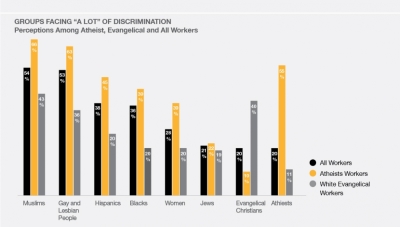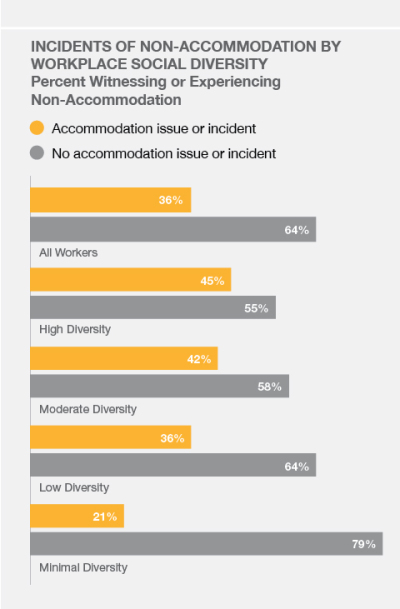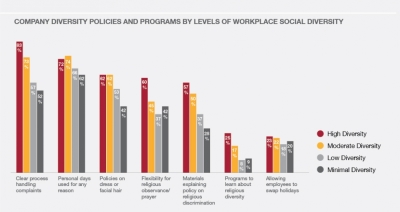Study Reveals 'Rampant' Religious Discrimination in American Workplaces
More than one-third (36 percent) of American workers say they have observed or have been subjected to religious "non-accommodation" in the workplace, according to a new study.
The Tanenbaum Center for Interreligious Understanding said in a press release that the national survey, "What American Workers Really Think About Religion: Tanenbaum's 2013 Survey of American Workers and Religion," uncovered "rampant" religious discrimination in American workplaces.
Such treatment is not only harmful to individual employees, the study suggests, but may be to organizations as well. People who work for companies that have no religious diversity policies are nearly twice as likely to be looking for a job as those who work for companies with such policies in place. Also, employees whose companies give them flexible hours so they can participate in religious observances are twice as likely to say they look forward to going to work.

"This survey puts employers on notice," said Tanenbaum CEO Joyce Dubensky in a statement. "American workplaces increasingly reflect the makeup of the country; they're more and more diverse. Work is the place where people with extremely different beliefs interact on a regular basis. But where there's more diversity, the survey shows that we can expect to find more conflict."
The respondents to the survey, which was conducted by Tanenbaum and Public Religion Research in March, were a random sample of 2,000 employed American adults.
The survey used terms like "discrimination" and "bias" when asking broad societal questions, but because many people define those terms differently, it focused on specific incidents for workplace-focused questions.
Workplace-focused questions, for example, would include those asking whether a company requires employees to work on the Sabbath or whether they allow workers to wear attire expressing their faith. Experiences where companies did not permit such things to occur were labeled "non-accommodating" rather than discriminatory or biased.

Researchers found that the most common forms of religious non-accommodation observed or experienced by employees are being required to work on the Sabbath or a religious holiday (24 percent) and attending company events that do not offer kosher, halal or vegetarian options (13 percent) for people with dietary restrictions.
While many non-Christians (49 percent) report being subject to or witnessing religious non-accommodation at work, a similar percentage of white evangelical Christians (48 percent) say the same is true for them. Fifty-nine percent of white evangelical Protestants say the discrimination against Christians is as severe as it is against other religious minorities.
"We anticipated that Americans from minority religious and non-religious groups would experience prejudice; and, as expected, both members of minority religions and atheists reported seeing or personally experiencing bias at work," the study says. "What is new is that a significant number of people from our nation's majority religious group, Christianity, are also feeling mistreated at work."
The survey found that nearly one-third (32 percent) of white evangelical Protestants believe others look down on their beliefs, as do 31 percent of non-Christian religious workers and 59 percent of atheists. Atheists (55 percent) are more likely than any other group to report that they face a significant amount of discrimination, though they are also more likely than all workers in general to believe Muslims, gay and lesbian people, Hispanics and women experience a significant amount of discrimination.

Many workers report their companies do not have important religious diversity policies. Less than half (44 percent) say they have flexible work hours allowing for prayer and other religious observances, 42 percent say their companies provide materials explaining their policies on religious discrimination, 21 percent say employees can "swap holidays" and 14 percent say their companies have programs designed to teach employees about religious diversity.
"If there's one message from this survey, it's that religion is a workplace issue," said Dubensky. "Employers who ignore it, do so at their own risk."
Tanenbaum is a secular organization that has spent more than 15 years working across industries to combat religious bias. The nonprofit seeks to promote respect for religious differences in workplaces, health care, education and in areas of armed conflict.




























